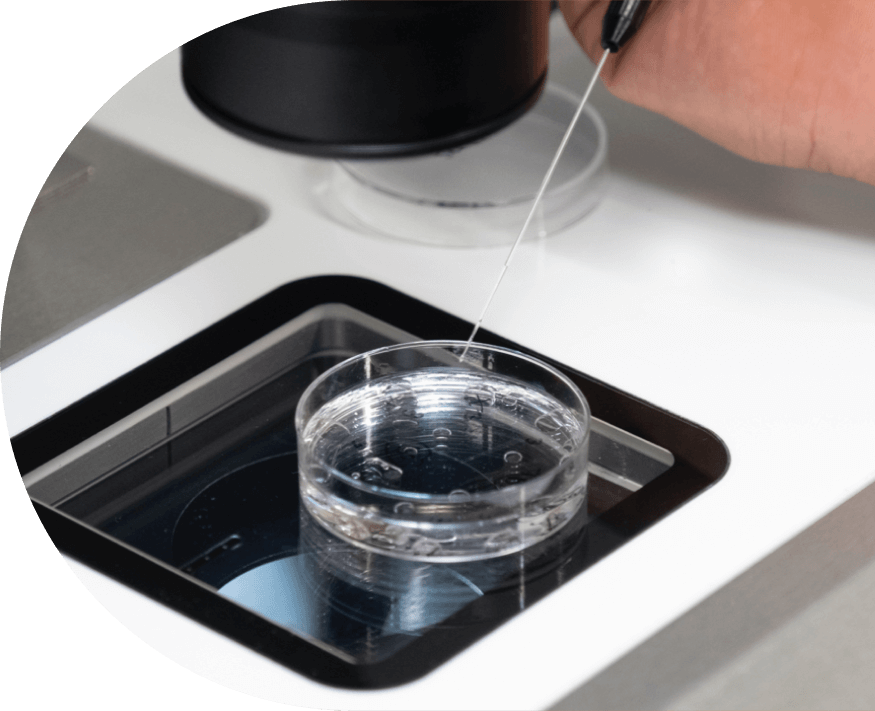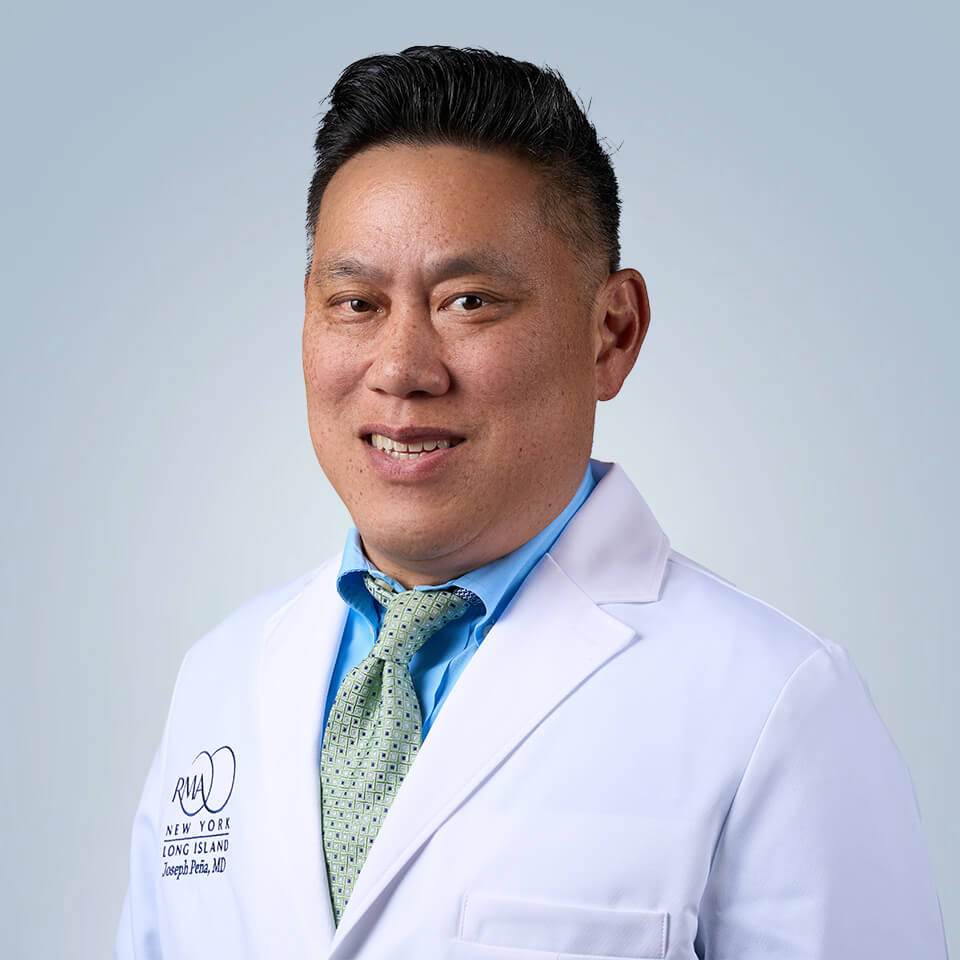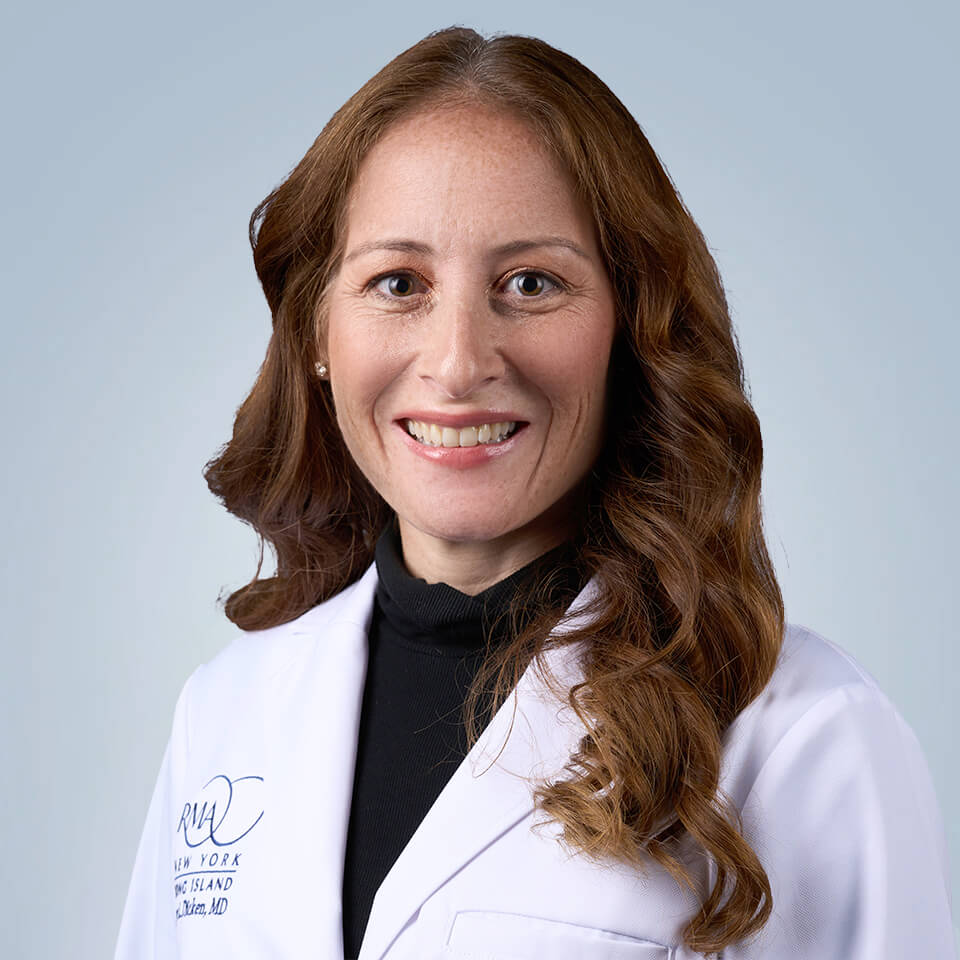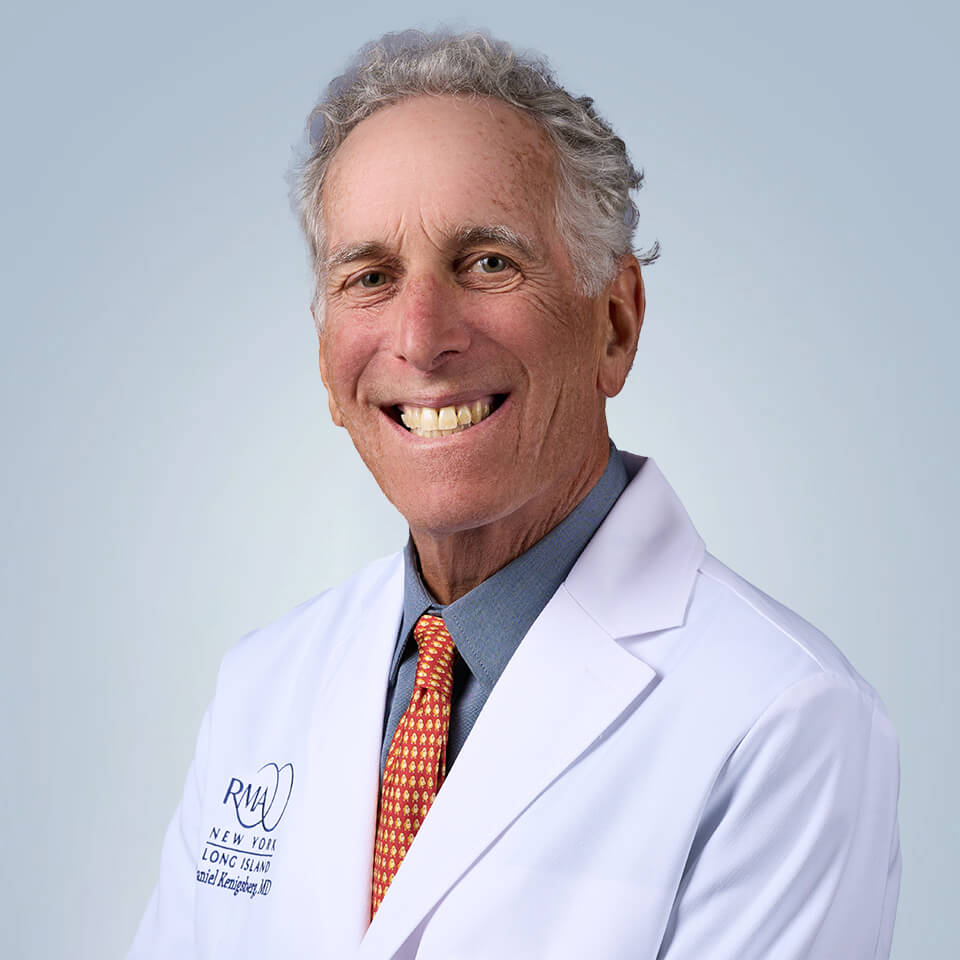Why Patients Choose Us for IVF
Top-Rated
IVF Doctors35+ Years
of SuccessState-of-the-Art IVF
laboratoryConvenient Long
Island Locations
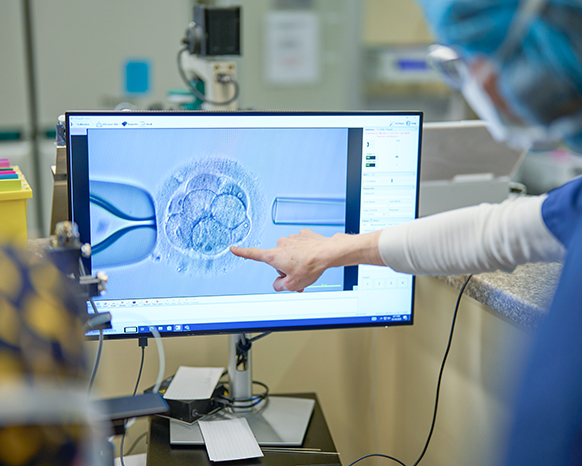
During IVF, eggs and sperm are combined in a laboratory to create embryos. The healthiest embryo is then transferred to the recipient’s uterus. Any additional embryos are then cryopreserved and stored for future IVF cycles.
Since we first opened our practice doors, RMA of New York – Long Island has achieved some of the most notable IVF successes in New York, including the first IVF birth on Long Island and the first birth from a cryopreserved embryo on Long Island.
The IVF Process
Step 1: Ovarian Stimulation and Monitoring

First, fertility medications are administered to stimulate the ovaries to produce and mature multiple eggs in one ovulation cycle (instead of just one egg in a typical, unmedicated cycle). These medications are self-administered injections and are typically taken over the course of 8 to 11 days.
During this time period, the patient comes to the fertility clinic about 5 to 7 times for brief monitoring visits, which involve blood tests and a transvaginal ultrasound exam. The monitoring visits allow your fertility specialist to monitor the progress of egg development and assess your body’s response to the medications. For our patients' convenience, these visits are often scheduled for the morning before a typical work day. Your fertility nurse will call you in the afternoon with your medication instructions for that evening. Using the information gathered during the monitoring visits, your physician will identify the ideal timing for the egg retrieval procedure.
Step 2: The Trigger Shot

When the eggs are sufficiently mature, you will be instructed to self-inject the final medication approximately 36 hours before the scheduled egg retrieval procedure. Known as “the trigger shot,” human chorionic gonadotropin (hCG) initiates the final stage of egg maturation.
Step 3: The Egg Retrieval Procedure

Egg retrievals are performed at our full-service IVF laboratory location in Melville. This allows our patients to meet all of their needs here on Long Island, without the need to travel into Manhattan or enter a hospital setting. Eggs are retrieved from the ovaries via a brief surgical procedure. While you are lightly sedated, your fertility specialist will use ultrasound guidance to gently insert a needle attached to a catheter through the vaginal wall into the ovaries. The eggs are then carefully aspirated (extracted) using light suction. After the procedure, patients are typically monitored for about 30 to 60 minutes in the recovery area as they awake from the sedation. Patients are then released to their post-procedure escort and are advised to relax for the rest of the day.
Step 4: Fertilization and Cryopreservation

The fourth step of the IVF process depends on your specific treatment plan. In all scenarios, the eggs are transferred to the embryology laboratory after retrieval. From there, they can either be fertilized and used in a fresh embryo transfer or cryopreserved for a frozen embryo transfer.
During in vitro fertilization, eggs are fertilized with sperm in a petri dish to create embryos. Fertilization occurs either by placing the sperm in the culture medium with the eggs or through intracytoplasmic sperm injection (ICSI). ICSI is a procedure in which the embryologist injects a single sperm into the egg, initiating fertilization. Over the course of a few days, the embryos are incubated and monitored for signs of successful fertilization and growth. In a fresh embryo transfer cycle, an embryo will be transferred to the uterus after fertilization, and the remaining embryos are typically frozen for potential use in future cycles. In a frozen embryo cycle, which may involve embryo genetic testing, all embryos are frozen and can be used in future frozen embryo transfer cycles.
Step 5: Embryo Testing

In some cases, preimplantation genetic testing (PGT) for genetic disorders or chromosomal abnormalities is recommended to ensure only healthy, viable embryos are being transferred to the uterus. PGT involves removing a small sample of cells from the outer shell that encases the embryo and analyzing its DNA.
Learn more about preimplantation genetic testing (PGT).
Step 6: The Embryo Transfer

In the second phase of a fresh IVF cycle, the patient returns between three and five days after their egg retrieval procedure for an embryo transfer. Utilizing ultrasound guidance, an embryo is transferred transvaginally with a thin catheter into the uterus through the cervix. Anesthesia is not needed and the procedure is typically not painful. Following the transfer procedure, patients rest for up to 30 minutes in the recovery room.
Step 7: Pregnancy Test

The pregnancy blood test is scheduled approximately 1-2 weeks after the transfer. This period of time can be very stressful for patients and feel like an eternity. At RMA of New York – Long Island, we understand how challenging the wait can be, so we provide tips, support, and counseling to help our patients get through this difficult period.
Additional IVF Options
Along the IVF journey, there are many advanced ART options that can improve your chances of having a successful, healthy pregnancy. As part of our IVF treatment, RMA of New York – Long Island also performs the following advanced laboratory services.
Freeze-Only IVF Cycles
For many patients, especially those with a hyperstimulated response to the IVF medications, it’s recommended that all created healthy embryos be cryopreserved prior to embryo transfer. For these patients, the unstimulated uterine lining is more suitable for implantation and the risk of hyperstimulation syndrome is significantly reduced. Patients undergoing PGT will also need to do a freeze-only cycle since the preimplantation genetic testing results will not be available in time to do an embryo transfer during the IVF stimulation cycle.
Frozen Embryo Transfer (FET) Cycles
Frozen embryo transfer (FET) refers to the process of thawing a previously cryopreserved embryo and transferring it to the uterus. This may be done as part of a regular IVF cycle or for aspiring parents who end up with a surplus of healthy embryos and wish to use them at a later time. An FET cycle may be medicated or unmedicated. Your physician will recommend the best course of action to achieve pregnancy success.
Assisted Hatching
Assisted hatching is performed on the embryo before it’s transferred to the uterus and involves using a laser to create a microscopically small opening in the embryo’s outer shell. When indicated, this procedure can increase the likelihood that the embryo will implant into the wall of the uterus, resulting in a successful pregnancy.
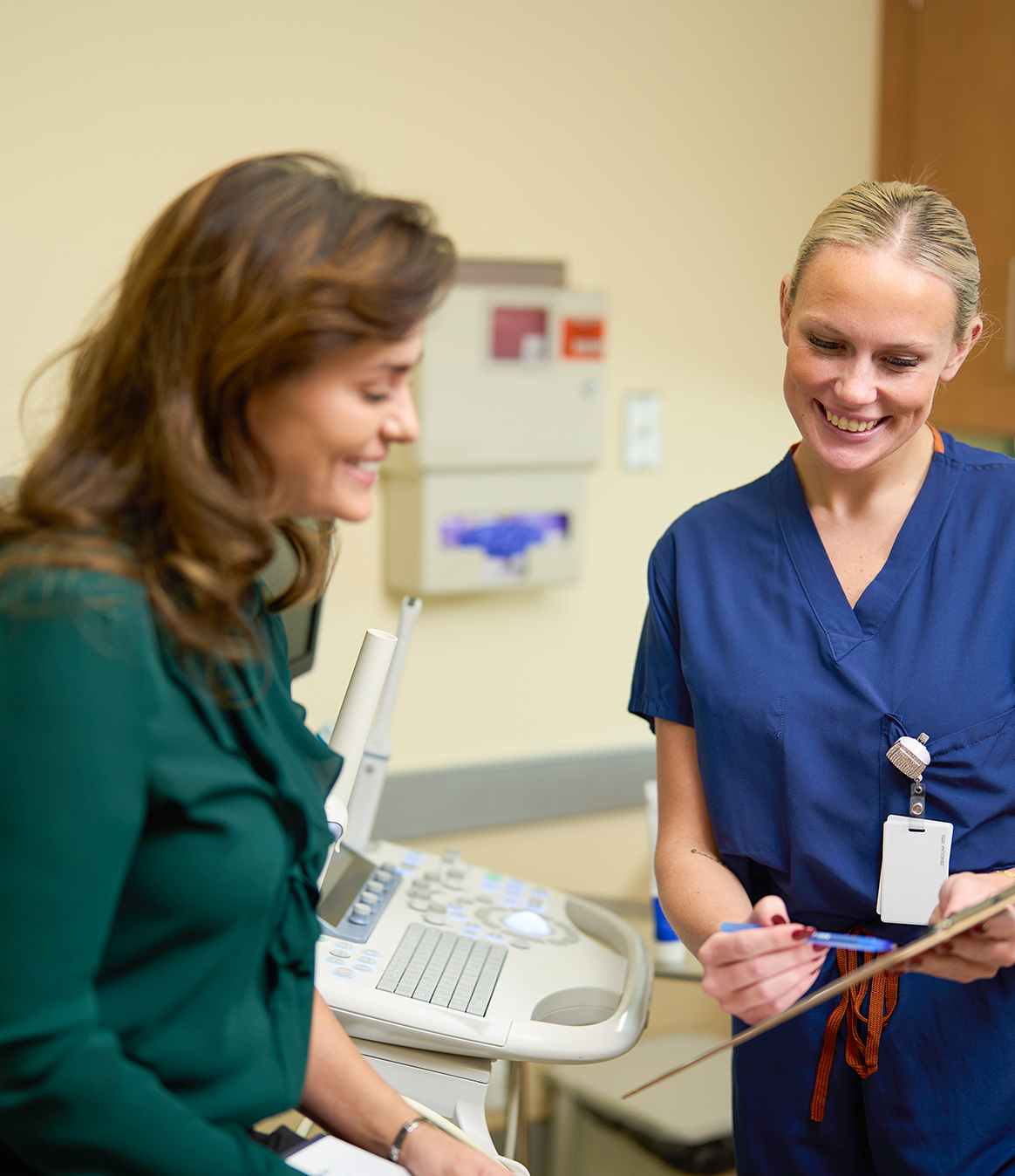
Why RMA of New York – Long Island: In Vitro Fertilization (IVF)
Since 1988, RMA of New York – Long Island has provided fertility patients throughout Nassau and Suffolk Counties with advanced, high-level fertility care, including IVF. Our unique approach to infertility care is firmly rooted in creating an individualized experience for each patient, using the safest and most effective technologies available, all with the convenience of being a local, neighborhood practice. When you walk into one of our fertility clinics, you can expect to work with a compassionate team that is dedicated to guiding you along your family-building path.
Visit us at one of our six convenient locations on Long Island, or request a consultation and take the first step toward growing your family.
Get Started
It’s never too early to learn about your fertility and reproductive options.
Have questions? We can help.
Patient-centric reproductive medicine is our specialty, and we look forward to answering any questions you may have.

